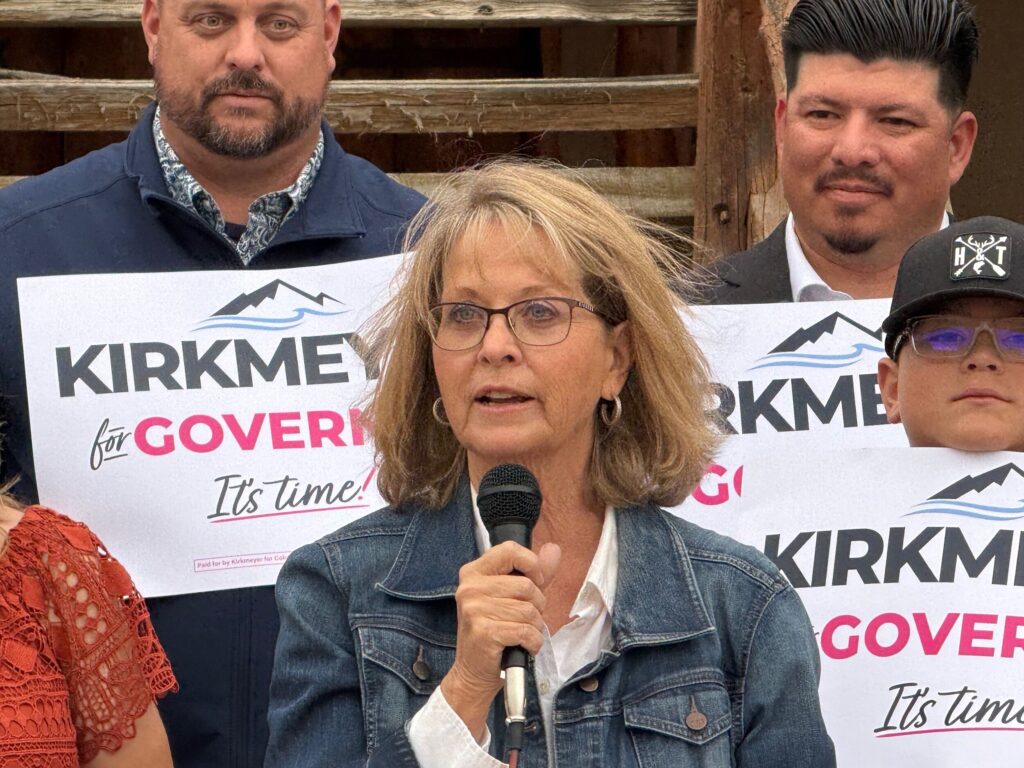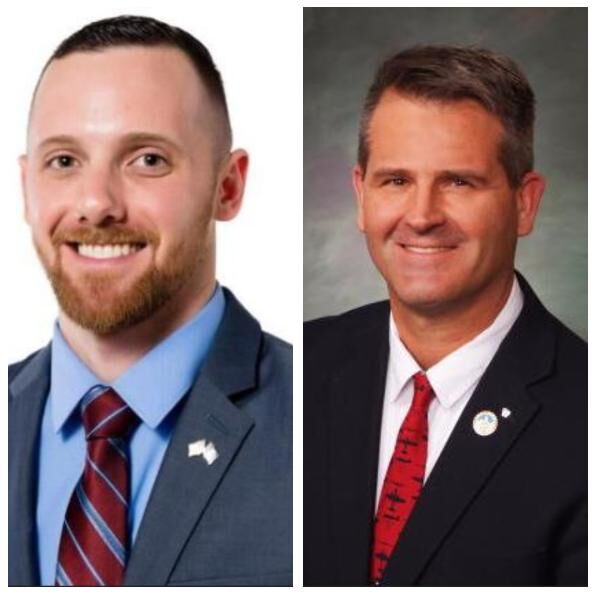What to expect from Colorado’s special session on property taxes
A deal to further reduce property taxes sits on a razor’s edge as lawmakers prepare to convene into a special session and pass the compromise aimed at heading off two initiatives from the November general election.
Some legislators are likely to push for more than a dozen bills — in draft form as of Thursday — that aren’t part of the compromise. If they advanced, it could result in the compromise going down in flames.
And political pressures are mounting. On the one hand, some residents argue the people should decide and the two initiatives should, thereby, appear on the ballot. On the other hand, some policymakers are unhappy they were not included in the negotiations.
The second special session of the 74th General Assembly that convenes next Monday will bring lawmakers for the second time in less than a year to deal with the issue of property taxes.
That session is expected to seal the deal, assuming no trouble arises.
What to expect
Lawmakers will return at 10 a.m. on Aug. 26 and the special session is expected to last at least three days. That’s the minimum amount of time it takes to pass a bill through both chambers of the legislature.
But it could go longer.
The session limit is mentioned in an Aug. 15 memo from the six legislative leaders, known as the Executive Committee of the Legislative Council.
“We will endeavor to complete our work in three days. However, since we do not know yet how many bills will be introduced, a firm three-day schedule cannot be set,” the memo said.
There’s also the potential for other reasons for extending a special session, as was the case in last year’s special session. That November 2023 session lasted four days, in part because of a technical glitch by Senate Democrats and a desire by Senate Republicans for more time to work on the property tax measures. A compromise on the first day eventually extended the session an extra day.
Last November’s special session was also marred by disruptions from pro-Palestinian protesters, joined by Rep. Elisabeth Epps, D-Denver, who brought the House chambers to a halt for an hour. House Speaker Julie McCluskie later reprimanded her over the disruption.
Epps was soundly trounced in her bid for a second term in the June primary. The Denver-based legislator, along with 19 other House members who won’t go back in January, are expected to participate in next week’s proceedings.
That includes Reps. Rod Bockenfeld, R-Watkins; Jennifer Parenti, D-Erie; David Ortiz, D-Centennial, and Don Wilson, R-Monument, who all chose not to run for another term. Reps. Tim Hernandez, D-Denver, and Julia Marvin, D-Adams County, both lost primary races. Rep. Gabe Evans, R-Fort Lupton, is running for the 8th Congressional District. Reps. Richard Holtorf, R-Akron and Mike Lynch, R-Wellington, both chose to run for Congressional District 4 instead of another term in the state House and both lost. Five other members are term-limited and five more House members are running for the state Senate instead of another term in the House.
In the Senate, the special session will bring back seven term-limited senators, plus Sen. Kevin Van Winkle, R-Highlands Ranch. Van Winkle is in his first term but is running for Douglas County commissioner, a seat he is expected to win in November. Sen. Perry Will, R-New Castle, also is expected to return although he will not be back in January, as he’s running for Garfield County commissioner instead of for his first full term in the Senate.
Already, worries have surfaced in the days leading up to the session from both sides of the aisle.
Sen. Byron Pelton, R-Sterling, said he’s received emails from constituents, asking lawmakers not to take the two ballot measures off the ballot and let the people decide.
On the other side, House Democrats held a call Thursday to talk about the session. There was frustration among caucus members over not being included in the negotiations.
The initiatives
The issue of property taxes has been a hot one at the state Capitol ever since voters approved a legislature-recommended repeal of the Gallagher Amendment in 2020.
At the time lawmakers referred the Gallagher repeal to the ballot, they were expected to come up with a long-term alternative.
Approved by voters in 1982, the Gallagher Amendment intended to maintain a ratio of 45% of property taxes generated by homes to 55% generated by commercial properties. The Colorado General Assembly would then periodically adjust the residential assessment rate in order to maintain that ratio.
But as residential property values climbed, it put more pressure on commercial property owners, rural communities and on the state government.
For the first decade after Gallagher passed, local governments could counter the drop in residential property tax revenue by increasing mill levies. That ended when voters approved the Taxpayer’s Bill of Rights in 1992. As a result, the state government had to step in to cover shortfalls in K-12 funding caused by declining residential property tax revenues.
Initially, Gallagher set the residential assessment rate at 29% and the commercial rate at 21.5%. But as residential properties grew in value, the legislature reduced the residential rate to maintain the 45-55 ratio. By 2020, when the legislature asked for the repeal, the assessment rate for residential had fallen to 7.15%, while the commercial rate remained at 29%, four times higher.
Once voters repealed Gallagher, the responsibility fell on lawmakers — primarily the Democrats who control both chambers of the legislature and the governor — to come up with something else.
In the meantime, skyrocketing home values meant property taxes were going up right, along with those home values.
That got the attention of Michael Fields, now with Advance Colorado, who in 2021 tried the first of several property tax measures. Voters rejected Proposition 120, which would have reduced property taxes by $1 billion in the 2023 valuation year, by 14 percentage points.
Lawmakers, preparing for that measure, made changes in property classifications — that was among the most significant steps they took to address the changing environment.
The 2022 session didn’t produce any long-term Gallagher fixes, either.
And then last year, Democratic lawmakers sent Proposition HH to the ballot. Intended as a 10-year fix for property taxes, it tapped TABOR refunds to cover a portion of those taxes for the foreseeable future.
That didn’t sit well with voters, who rejected the proposal championed by the governor and his party by 18 percentage points in the November 2023 general election.
Polis almost immediately after called for a special session, which resulted in, among other things, the creation of a property tax commission that would look for a way forward. And for more short-term property tax relief.
The long-term fix remains elusive.
In October 2023, election officials certified for the ballot Proposition 50, a constitutional amendment that would limit the growth of property tax revenue collected in the previous year to 4%. Under the measure, voters would need to approve any increases above 4%.
The 2024 session began with that ballot measure already hanging over lawmakers’ heads.
In contrast to the 2023 session that was fraught with division, lawmakers on both sides of the aisle began looking at a property tax fix in a more collaborative way this year.
That took almost the entire session, with negotiations that included Michael Fields of Advance Colorado and Dave Davia, the CEO of Colorado Concern, which, along with Fields, also backed a second ballot measure, Proposition 108.
Under Prop 108, which is a statutory measure, the residential assessment rate would be reduced to 5.7%, and the commercial rate pegged at 24%. The general fund would have to backfill the lost revenue to local governments that rely on property taxes, whether schools, fire or hospital or special districts.
The hit on the state budget was estimated by the Bell Policy Center at $3 billion.
That impact would occur at a time when the state budget is growing tighter by the year.
Although negotiations stalled with the conservative groups, Polis and a bipartisan group of lawmakers announced their own compromise with just three days left in the 2024 session.
In its first year, the deal would cut property taxes by $1.3 billion. Under Senate Bill 233, commercial property tax assessment rates would be reduced from 29% to 25% over a two-year period. For homeowners, property valuations will decrease from 6.8% to 6.7%, with a 10% reduction in home value for the purposes of taxing liability. This primarily applies to homes valued at $700,000 or less.
It wasn’t enough for Advance Colorado or Colorado Concern, which announced they would move forward with their ballot measures.
And that made those in the K-12 community and lawmakers who had worked for years to pay off a 15-year “debt” to schools nervous.
The deal
With both sides fully aware of the risks to their respective causes, negotiations continued over the summer.
The next public sign of movement emerged via a meeting by the property tax commission on Aug. 12 to discuss the impact of the two ballot measures on the state budget.
According to a presentation from Mark Ferrandino, director of the Office of State Budgeting and Planning, the 2025-26 budget is forecast to grow by 3.3%, meaning about $648 million to cover caseload increases, salary increases, and other operating needs. That’s far less than what has been available, about $1 billion each, in the previous two years.
He also compared the deal being negotiated among Advance Colorado, Colorado Concern, the governor and lawmakers to the fiscal impact of Proposition 108, saying the compromise would result in a substantially smaller reduction in property taxes and shouldn’t affect K-12 funding.
Here’s what the detail entails:
-
Cuts the effective residential property tax rate to 6.3% or 6.4%, depending on assessment growth
-
Reduces the commercial property tax rate to 25%
-
Caps growth to 5.25% for local governments and 6% for inflation growth, whichever is greater, for school districts
-
Ensures a “clear and non-biased ballot language” in the required vote of the people to opt out of the local cap
Should a bill containing this deal pass, Advance Colorado and Colorado Concern pledged to remove their ballot measures and not to seek any future ones.
The deadline for withdrawing ballot measures is Sept. 6, nine days after the potential conclusion of a three-day session.
Three days after the property tax committee meeting, the governor announced that a special session will begin on Aug. 26.
Is the deal in jeopardy?
According to the Aug. 15 legislative council memo, members are limited to just one bill each, unless given permission to do more.
Various estimates indicated that as many as 20 bills are being drafted. The deadline for final versions to be submitted to to the House and Senate desks is 10 a.m. on Aug. 23.
The memo also asked lawmakers to notify the Legislative Council staff if the drafts can be published on Friday, similar to what happened with some of the bills in last year’s special session.
The main property tax deal will be sponsored by McCluskie, D-Dillon; House Minority Leader Rose Pugliese, R-Colorado Springs; and, Sens. Chris Hansen, D-Denver, and Barbara Kirkmeyer, R-Weld County.
Hansen and McCluskie did not return calls for comment.
“My aspirational goal is that we, in a bipartisan way, rally around additional property tax relief and provide certainty to local governments,” Pugliese told Colorado Politics. As was the case with Proposition HH last year, if either ballot measure succeeds, she said “local governments would have to prepare two budgets. It’s been a struggle for local governments especially in rural communities, to do the analysis and understand the impacts.”
But at least another dozen bills are also being crafted for next week that aren’t part of the deal, and sources have said some of those measures could put the deal in jeopardy.
Among them is a concurrent resolution — which requires a two-thirds vote in both chambers — to ban statewide initiatives on property taxes, leaving that decision primarily to citizen and their local governments, where property taxes are collected and spent. Sponsors are Democratic Rep. Mike Weissman of Aurora and Hansen.
Kirkmeyer called the resolution a “deal-breaker” on Tuesday. The legislative council memo said a concurrent resolution to amend the constitution will be treated like a bill.
Proposed constitutional amendment could end special session deal on Colorado property taxes
Multiple sources also said there could be a bill to hike property taxes on short-term rentals, similar to a Senate bill that failed in the Senate Finance Committee during the 2024 legislative session. Hansen and Weissman sponsored the regular session bill.
Impact on school funding
On Aug. 12, a coalition of 45 groups, ranging from K-12 and higher education advocates to realtors and homebuilders, wrote to the property tax commission to express support for a special session and a compromise to codify a deal.
They pleaded with lawmakers to come up with just one bill that implements one agreed-upon deal.
“This focused approach will ensure the session remains productive and avoids unnecessary complications,” they wrote.
Joint letter to the property tax commission
That there are so many other proposals being floated has some lawmakers and members of the coalition worried.
Bret Miles, executive director of the Colorado Association of School Executives and who was among the signatories to the Aug. 12 letter, said that, given the work lawmakers did to pay off the last of the $1 billion “debt” to K-12 in the 2024 session and the substantial rewrite of the state’s school finance formula, the potential for the two ballot measures to wreck havoc on K-12 funding was worrisome.
He said the payoff of the debt and the school finance rewrite “just felt like the momentum was headed in the right direction, of eliminating the rough past” and coming up with a path for a bright future. “We can’t go back on what we said we were going to do for Colorado kids,” he said.
The Bell Policy Center estimated the budget stabilization factor — that $1 billion debt — would return with the passage of Proposition 50. It “would decrease the local share of education funding by $121 million in the first year, reaching $1.38 billion by 2032. This would assuredly bring back the Budget Stabilization Factor,” the group wrote in a May newsletter.
The group also questioned whether the state could come up with $3 billion in cuts that would result from Proposition 108.
The proponents of Propositions 108 and 50 and their allies have long argued that the legislature’s actions have been inadequate, and that Colorado residents facing soaring tax obligations must be offered a meaningful relief.
Miles from the Colorado Association of School Executives told Colorado Politics he has received the bill containing the deal on Thursday but had not yet had time to look it over, so he couldn’t take a position on it.
“We were interested enough to see this conversation happen,” he said.
He said lawmakers have made K-12 funding a priority over the last several years and thought that with almost 90% of lawmakers backing the deal from the regular session, the compromise was firmly in place.
Now, his biggest worry is whether the deal “slides backward” on that promise to K-12. “To find out (the session bill) wasn’t good enough is tough to swallow because we thought we took care of it.”
The K-12 community is excited about the revisions to the school finance act and its emphasis on equity, Miles said.
“We’ll ask our legislators to not go back on that promise” and push hard to not reverse the trend of eliminating the budget stabilization factor,” Miles said.
With regard to the deal itself, the 6% growth cap on property tax revenue for schools is a concern, Miles said.
“It seems a lot lower than typical growth,” he said.
At the same time, teachers and others in the education community are also homeowners, or have businesses, and understand the situation everyone is in, he said.
Miles said his group will fight to protect the decoupling of school property tax revenue from local government revenue, as is contained in the deal.
That approach will stabilize education funding, Rep. Lisa Fritzell, R-Castle Rock, maintained on Thursday.
“This is an exciting opportunity to get this right,” she said, adding that reflects “more give” on assessment rates than was contained in the legislation enacted several months ago. “I knew walking out the door in May that it wasn’t enough.”










